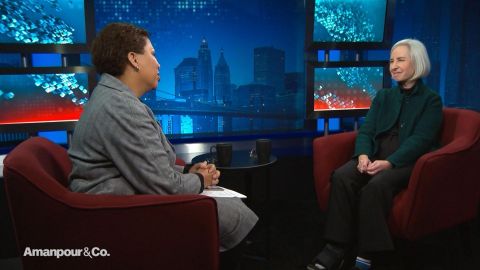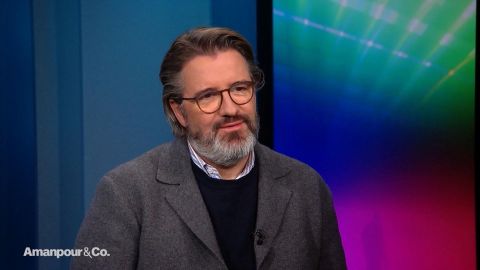Read Transcript EXPAND
CHRISTIANE AMANPOUR: When Duterte later went on his killing spree, they would regret using the term war.” So, that’s Peter Pomerantsev using Duterte and “Rappler’s” sort of interlinked there —
RESSA: Yes.
AMANPOUR: — as an example of what then went wrong.
RESSA: I don’t think that we did anything differently. We were reporting his campaign as we always have, right? He was one of five candidates. We had no political agenda. I think where it came together is that he says things candidates shouldn’t say, like in one interview he told me he killed three people. Who says that? And who’s running for president, right? And when he went to this presidential debate, it was maybe 1,000 students there, 1,000 audience, it was the kick off to his presidential campaign outside of Mindanao, because that was January of 2016.
AMANPOUR: Which was the province where he’d been governor — mayor.
RESSA: Right. And I think he also realized the power of “Rappler,” because what made us different was unlike the traditional news groups, we had the millennials. Our main base, because we went on social media, that was our primary distribution. Our age was 18 to 34. And then, of course, when we continued reporting the way we have been reporting, the minute you see the — an average of eight people getting killed every night, that was what our reporter was coming home with. That’s off the scale. And we kept doing it.
AMANPOUR: And so, what happened? Because then he turned on you and the community turned on you or appeared to. What happened?
RESSA: So, these are familiar tactics, right? I mean, the first thing was the social media attacks. So, Mayor Duterte used social media successfully to get elected. At the beginning, you know, I was clapping because they actually did that. But the weaponization of social media happened after he became president, not coincidentally with the start of the drug war. And they went after, not just journalists, and this is very personal, this a new weapon against journalists, but they also went after anyone who questioned the drug war. Then after that, this — they systematically attacked traditional journalists. We weren’t first in line. We were third. The largest newspaper, the largest television station. We were third in line. And I think we just pushed back.
AMANPOUR: How did you push back?
RESSA: We wanted to continue doing the story and it was clear that the government was fudging numbers. The first casualty in the war for truth was the number of people killed in the drug war. Today, the government will say — will admit to killing almost 6,000 people. That number alone is insane. But if you compare it to what the Philippines Commission on Human Rights and the U.N. says, it is more than 27,000 people killed. That’s genocide, right?
About This Episode EXPAND
Nima Elbagir gives a special report on abuse and exploitation within the Catholic church. Maria Ressa talks to Christiane about her work as CEO of Rappler and the importance of a free press. Artist Olafur Eliasson joins the program to discuss his new exhibit at London’s Tate Modern, and Martha Minow speaks to Michel about her new book “When Should Law Forgive?”
LEARN MORE


